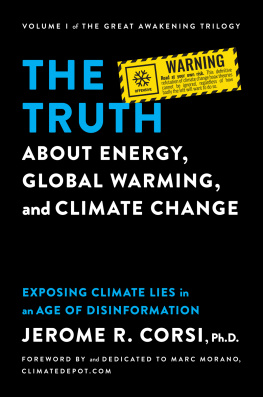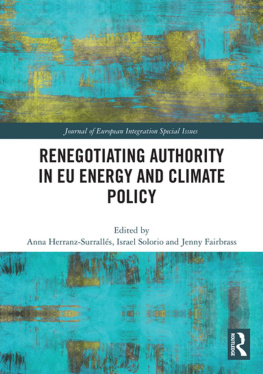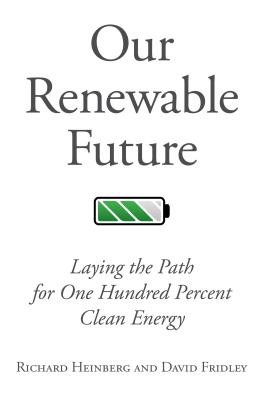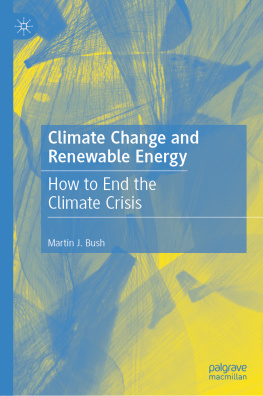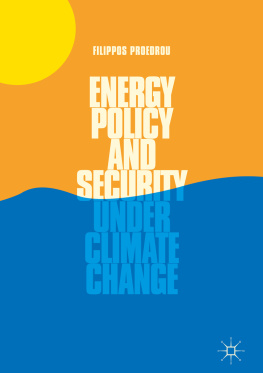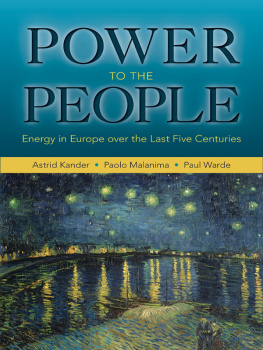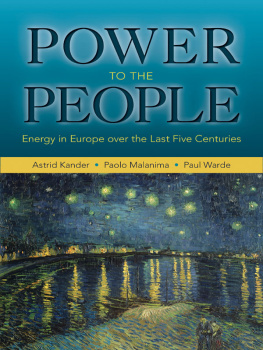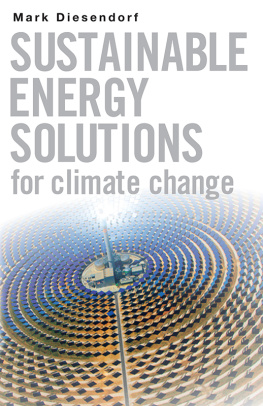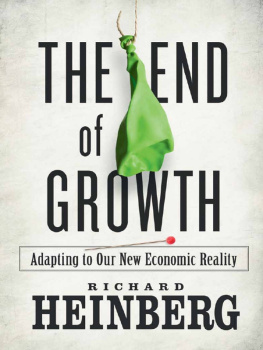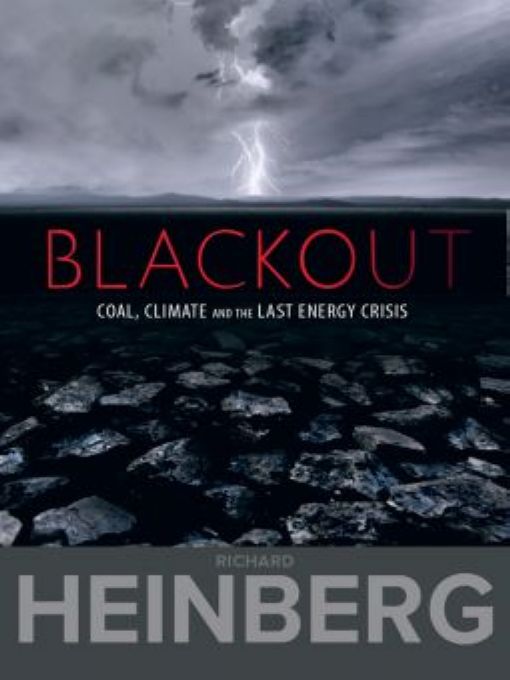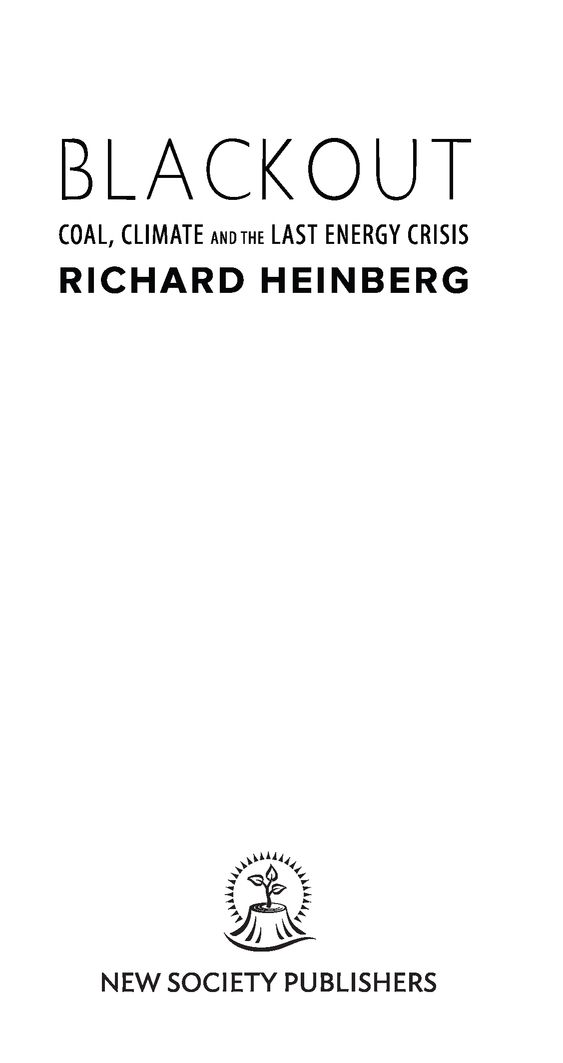Table of Contents
Advance Praise for
BLACKOUT
In Blackout, Richard Heinberg has made a major contribution to the coal debate. What is new is his focus on the question of how much minable coal there is. Governments have consistently over-estimated it, but the answer is critical for climate policy and for planning for alternative sources of electricity.
David Rutledge, Tomiyasu Professor of Electrical Engineering Former Chair, Division of Engineering and Applied Science California Institute of Technology
Coal lies at the very center of our predicament as a civilization its the habit we must kick, and fast, as Richard Heinberg makes abundantly clear in this powerful volume. Its your program for understanding the drama now unfolding on the global stage.
Bill McKibben, author Deep Economy
Blackout provides a startling wake-up call for energy optimists who believe our economic future is guaranteed by centuries worth of available coal as well as for environmentalists who see peak coal as a salvation from climate hell. This clearly written and meticulously documented book provides a powerful case for a rapid global program to rewire the world with clean energy. Any other option puts the survival of our coherent civilization at risk.
Ross Gelbspan, author, The Heat Is On and Boiling Point
Blackout reviews the most recent analyses of global coal reserves and concludes that peak coal production is likely much nearer than is commonly assumed. In the context of global warming, peak oil, and declining net energy, Heinberg argues cogently that the most rational strategy is to reduce consumption and to rethink our growth imperative.
David Fridley, Scientist at Lawrence Berkeley National Labs
A great deal of the human future depends on how clearly and carefully we think about coal... Richard Heinberg is an insightful and reliable a guide to the subject and his conclusions are spot on. Should be required reading for those making energy policy everywhere.
David Orr, Paul Sears Distinguished Professor of Environmental Studies and Senior Adviser to the President, Oberlin College; author, Down to the Wire: ConfrontingClimate Collapse and Earth in Mind; trustee of the Rocky Mountain Institute and the Bioneers.
Acknowledgments
IN THE PREPARATION OF THIS BOOK I was aided immeasurably by Julian Darley, who read each of the chapters in draft form and provided many useful comments; Laura Rodman, whose research, fact-checking, and documentation were crucial; my colleagues Daniel Lerch and Asher Miller, at Post Carbon Institute, who participated in scenario discussions for Chapter 8; and David Rutledge, who offered key suggestions and corrections late in the writing process. And of course thanks, as always, to the editorial team at New Society, including Ingrid Witvoet and Judith and Chris Plant. Any remaining errors in this rather data-laden text are my sole responsibility.
Introduction
A SOIL PRICES CLIMBED DURING 2007 AND 2008, another and perhaps more serious energy crisis loomed one largely unnoticed by most Americans and Europeans.
A hundred or more countries are suffering, some acutely, from shortages of electricity; and in many instances, these blackouts are due to the lack of what is supposed to be the worlds most abundant fuel coal.
China has idled 50 of its coal-fired power plants for lack of fuel, and growing power outages threaten to undermine that nations economy.
Indias hydropower from the Himalayas is drying up due to global warming, and, though the country is pushing for more wind and solar power, its rapidly rising demand for coal is exacerbating both climate change and international coal shortages.
Pakistan and Afghanistan, battlefronts in Americas war on terrorism, are routinely plunged into darkness.
South Africas mining industry is plagued by a lack of reliable electric power to run its coal, gold, and diamond mining industries. In the rest of sub-Saharan Africa, nearly two-thirds of countries experience frequent and extended electricity outages, and many are looking for coal to supplement inadequate hydropower resources.
Great Britain experiences power shortfalls with ever-greater frequency, with analysts describing the nations electricity-generating infrastructure as crumbling and inadequate for 21st-century use; the industry estimates that it will need to spend 100 billion building a new generation of power stations more than has ever been spent before on any similar project in the countrys history. The British coal industry, once the worlds largest and the main supplier of power to the national grid, is now virtually gone, largely due to the depletion of the countrys once-vast coal reserves.
Some nations that can afford high oil prices dont have sufficient electricity to run refineries. And even energy-rich countries like Venezuela and Iran are not immune, suffering from electrical blackouts even as they export oil.
In the United States, energy experts forecast more frequent grid outages in years ahead due to lack of generation capacity and an aging grid infrastructure in need of thorough overhaul. Americas coal appears abundant indeed, the domestic industry has begun exporting more coal recently due to high international demand and soaring prices but the quality of the coal that is being produced from US mines is declining, so America gets less energy from the resource even though more is being dug from the Earth.
The world depends on coal for 40 percent of its electrical generation capacity (a greater share than comes from any other single source), and coal has seemed endless in supply; yet the average price of coal doubled during the two years from mid-2006 to mid-2008, and its availability in even the near future is questionable in some countries that use large amounts.
Part of the coal supply problem arose from added transport costs and reduced reliability resulting from tight oil supplies. But depletion of the worlds highest-quality coal reserves also added to the delays, the soaring electricity prices, and the power outages.
These problems are already of crisis proportions in many nations, though for most Western energy consumers they constitute merely an occasional annoyance or a vague worry. But if current trends continue, the likely consequences are difficult to overstate. Unless the world adopts a very different energy paradigm and soon problems with coal and electricity supplies can only spread and worsen year by year until, some time in the next two to three decades, human civilization approaches a universal, final Blackout.
Why Care About Coal?
1. The Economy
If coal were of declining importance in the worlds energy mix, the problems of depletion and declining availability would not be serious. Instead, however, coal is at the center of energy planning for many nations especially the burgeoning Asian economies. Despite environmental concerns, coal is seeing the fastest percentage growth in usage worldwide of any of the principal fossil fuels, and the fastest growth, in terms of BTUs delivered, of any energy source.
This resurgence was mostly unanticipated.
Coal was the first fuel of the industrial age; it was the worlds primary source of energy from the end of the 19th century (when it supplanted wood) until the middle of the 20th (when it was overtaken by oil). More recently, natural gas has substituted for coal to some extent in electricity generation, partly because of growing concerns about greenhouse gas emissions (coal is the most carbon-intensive common fuel, natural gas the least); meanwhile oil has become the globes most important fuel largely because of its role in transport.



